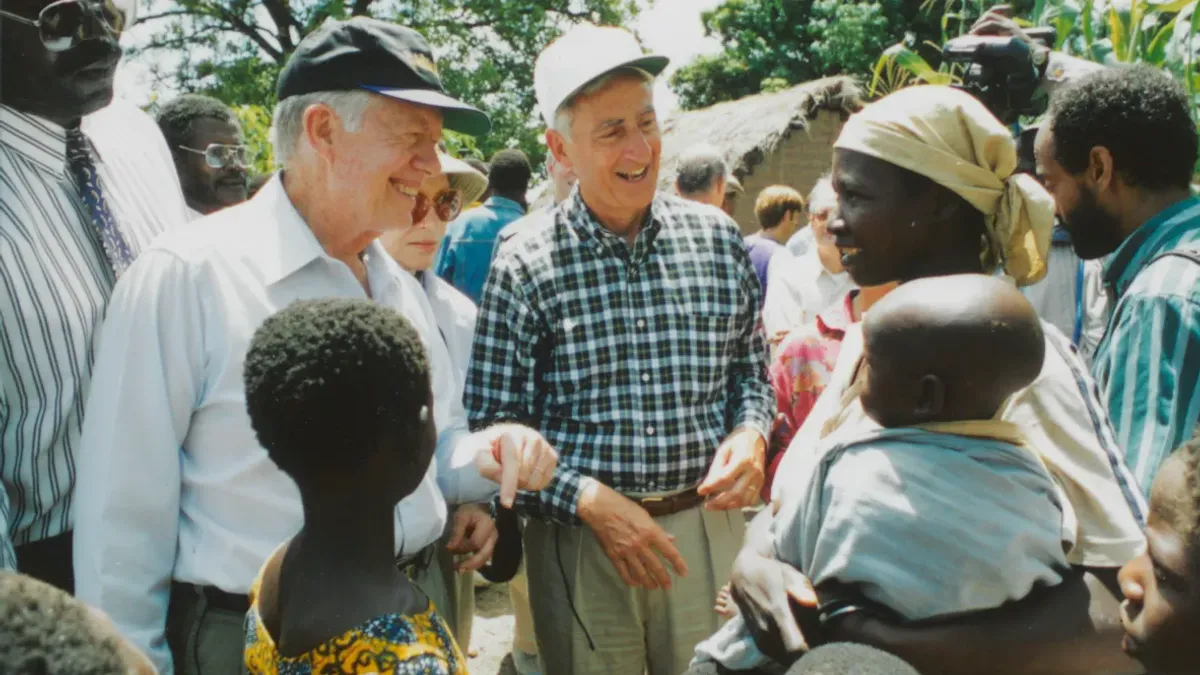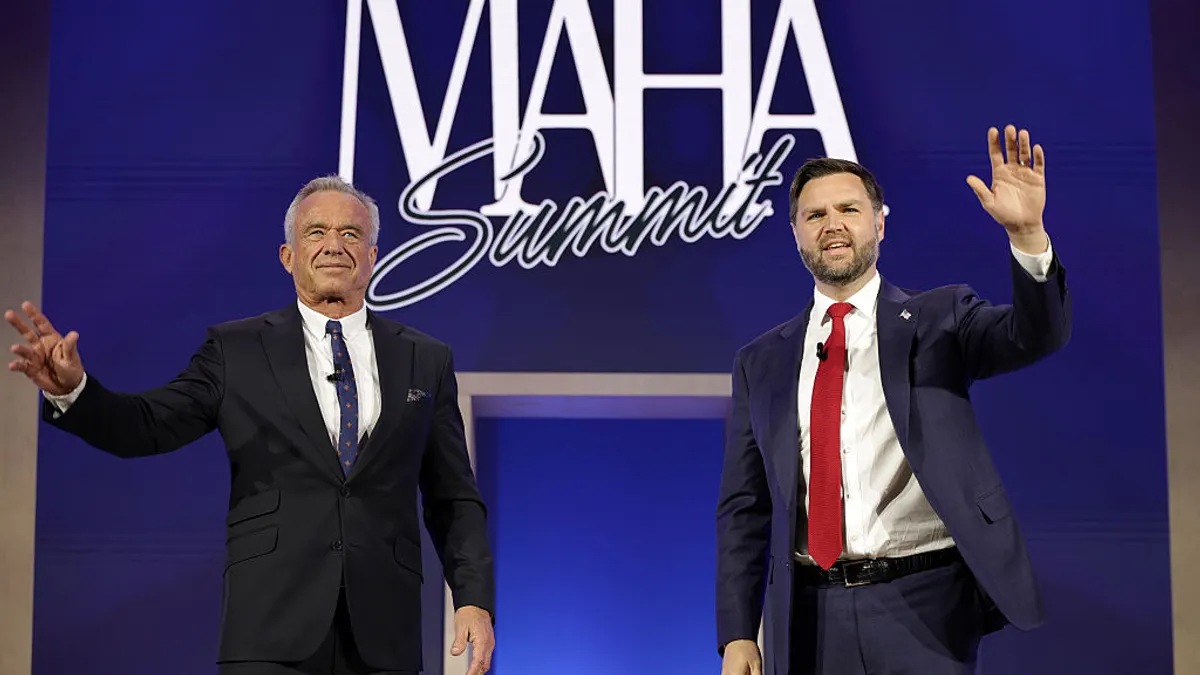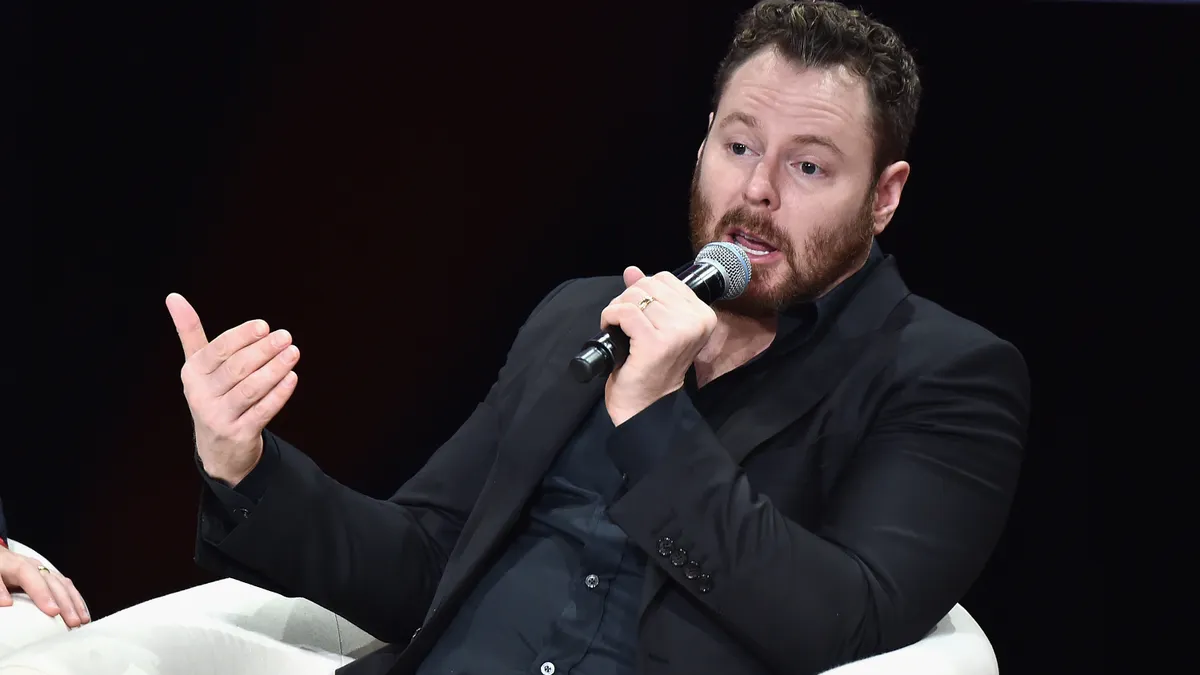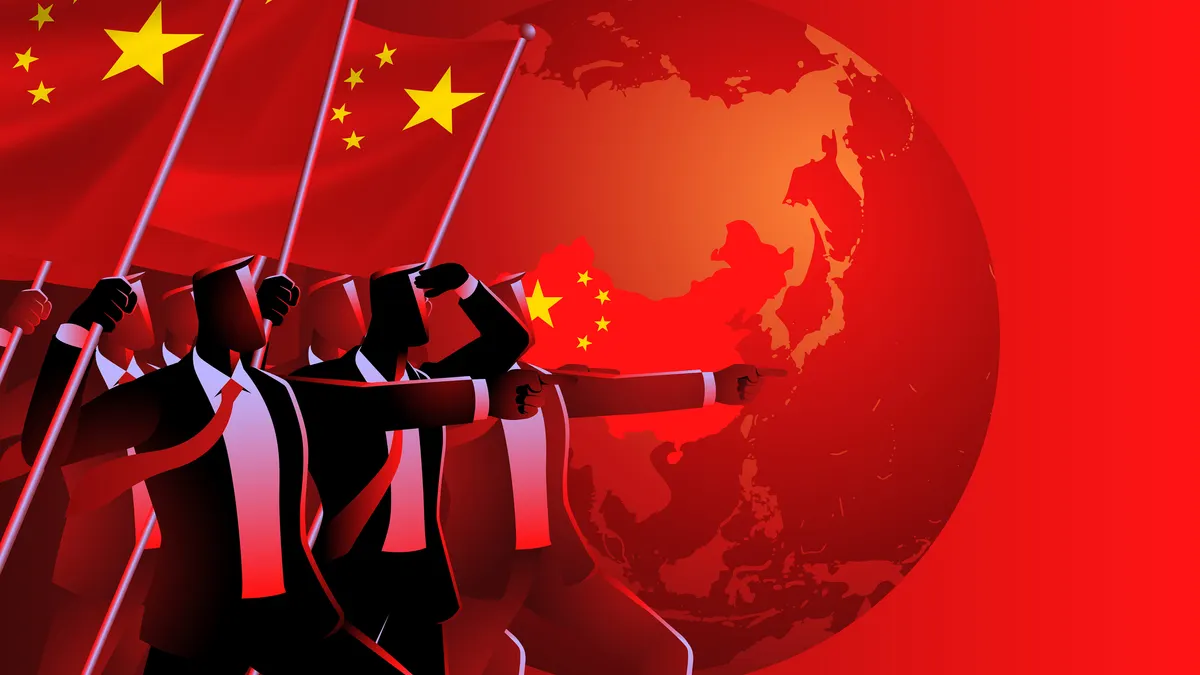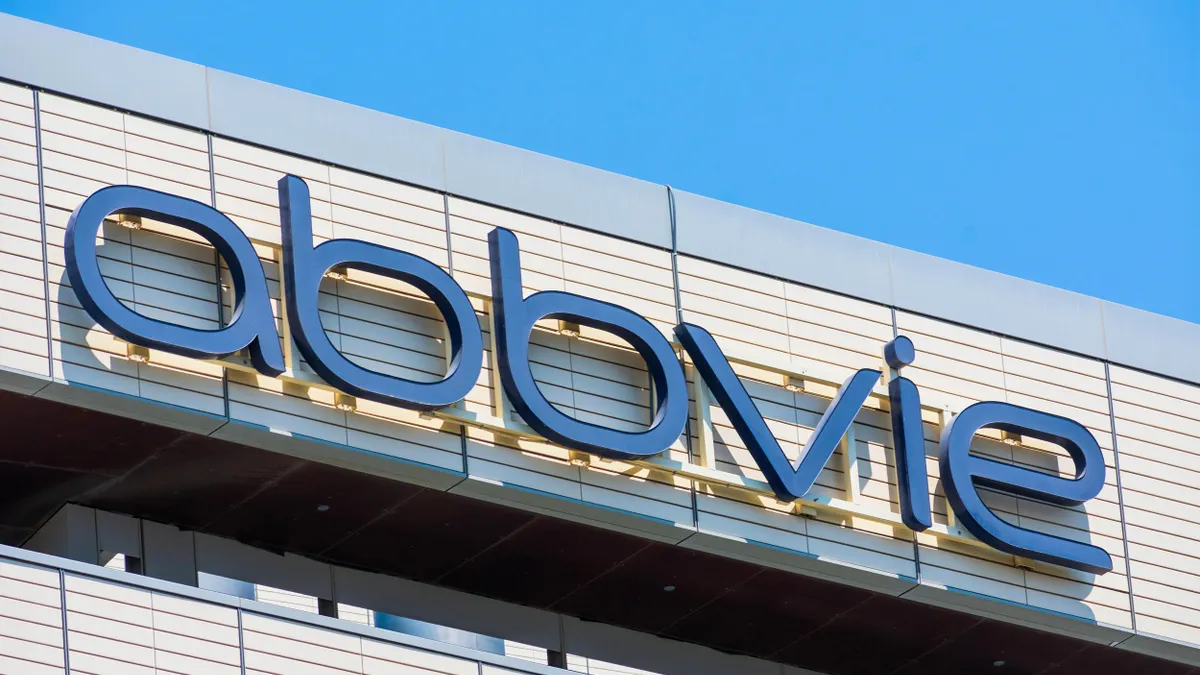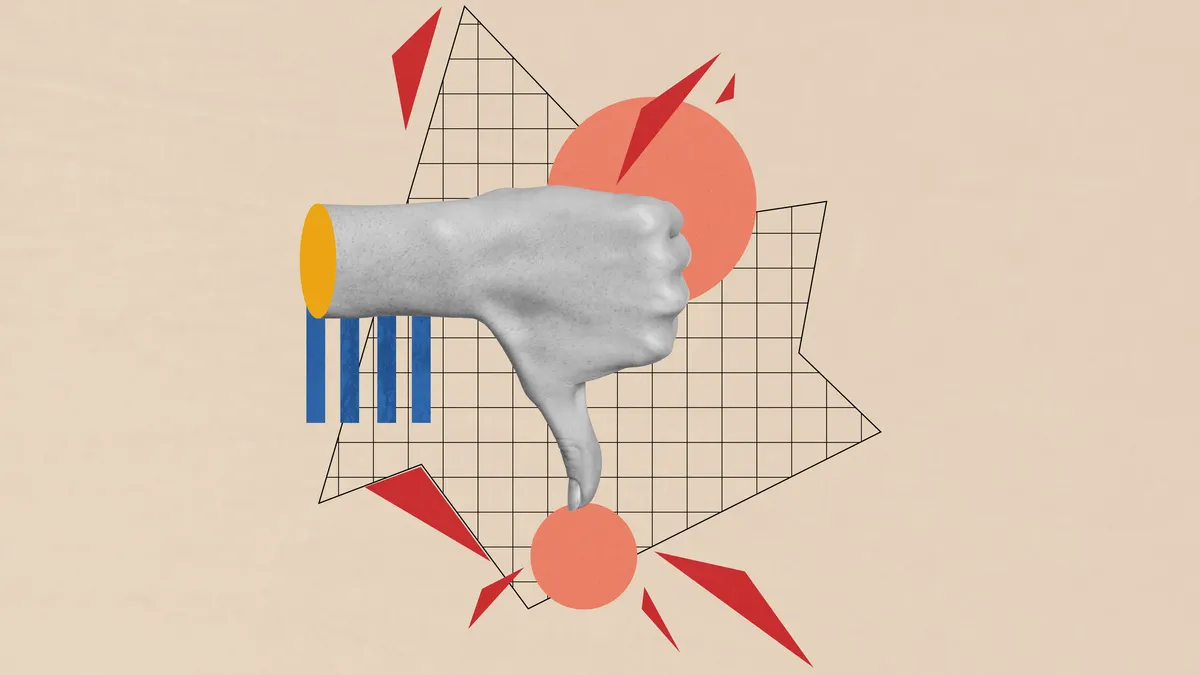Former President Jimmy Carter, who died Sunday, was devoted to global health in the decades following his time in office, particularly through his nongovernmental organization The Carter Center. Along the way, Carter collaborated with some of the biggest pharma companies in the world to deliver innovations that addressed daunting global challenges.
Launched a few years after his re-election loss in 1980, The Carter Center pulled together a range of major partners including multiple governments, official health organizations, large philanthropic foundations and pharma companies. Carter set his sights on infectious diseases like Guinea worm, meeting with African heads of state to bring interventions to affected countries. That got the ball rolling for the former president and his organization to branch out to other infectious diseases, invoking the help of the pharmaceutical sector for needed treatments.
“As a tireless advocate for health and social justice, President Carter was a compassionate and committed voice for impoverished communities worldwide,” the World Health Organization wrote in tribute. “His unwavering dedication to combating neglected tropical diseases leaves an unparalleled legacy in global health, saving millions from debilitating illnesses.”
Here are some of the pharma companies that joined Carter in his efforts to leverage the powerful public platform for good.
Merck & Co.
Merck teamed up with The Carter Center in the 1980s to work toward eradicating river blindness, an infectious disease that primarily affects African countries. What started as a large donation of the antiparasitic drug ivermectin — which was branded as Mectizan and also a part of Merck’s veterinary portfolio — became a promise to donate “as much as needed, for as long as needed” to treat patients with river blindness, according to a Merck tribute. The drug has been free for that purpose since 1987.
Carter and then-Merck CEO Dr. Roy Vagelos visited Chad together in 1994, where they distributed Mectizan for a small village in which nearly everyone was afflicted with the disease, according to a release at the time.
"The Mectizan donation story is a powerful reminder that it is possible to help people change their lives," Carter said. "This partnership among private, public and nonprofit organizations has significantly improved the health of millions of Africans who are at risk for river blindness."
Much later, when Carter was diagnosed with melanoma in 2015, the former president received Merck’s leading cancer drug Keytruda as a treatment.
GSK
In 1998, an executive from the company called SmithKline Beecham spoke with Carter and offered to become part of a drug donation program. The former president immediately took the executive up on the offer, according to a report this week in the New York Times.
The U.K. drugmaker, now GSK, has worked with The Carter Center since that time to donate and distribute the medicine albendazole — along with Merck’s Mectizan — to treat lymphatic filariasis, a mosquito-borne disease also known as elephantiasis. The disfiguring disease affects millions in Nigeria and nearby African countries.
Johnson & Johnson
J&J has collaborated with The Carter Center since the early 2000s to provide medical supplies and consumer products like Tylenol and Neosporin to countries impacted by Guinea worm. The supplies have helped communities in Africa mitigate infections, according to The Carter Center.
"With less than [3%] of the original caseload left to tackle, this significant new corporate commitment from Johnson & Johnson provides critical momentum for total eradication," President Carter said in a 2001 release when J&J donated supplies.
The company has continued to provide support to treat neglected tropical diseases.
Pfizer
Pfizer and The Carter Center have worked together since 1998 to bring hundreds of millions of doses of the antibiotic Zithromax to sub-Saharan Africa in the fight against the infectious eye disease blinding trachoma. Along with the International Trachoma Initiative, the company has now donated 1 billion doses to more than 40 countries.
“The Pfizer donation of Zithromax was momentous in trachoma control, and The Carter Center was pleased to go to scale in trachoma endemic countries to get the medicine into the villages and demonstrate the world could end blinding trachoma,” Carter said in 2013, celebrating 15 years of collaboration.
Amgen
Carter visited Amgen’s headquarters in 1991 to thank the company for donating 398,000 vials of the anemia treatment Epogen to China through The Carter Center. The company commemorated the moment in a post on LinkedIn early last year.



